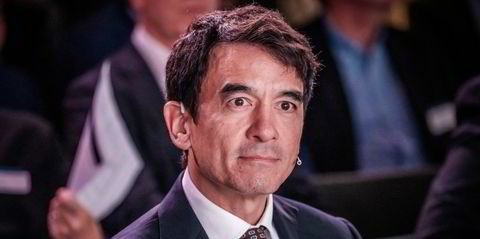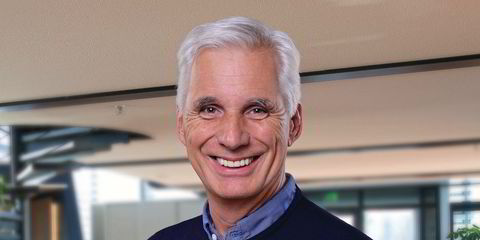Deep emission cuts for shipping will be impossible without the introduction of carbon-free fuels, the president of Europe's shipping lobby warned on Monday.
Incremental technology progress, such as improving propellers or making engines more efficient, will not suffice to cut emissions by 50% from 2008 levels by the year 2050, as recently agreed at IMO level, said Panos Laskaridis, president of the European Community Shipowners' Associations (ECSA).
"One thing is for sure: there is not going to be a reduction of these percentages of the CO2 and greenhouse gases levels unless we go to carbon-free fuel," Laskaridis said during a Capital Link conference on Posidonia opening day. He was speaking just after IMO secretary general Kitak Lim, who had hailed the agreement.
Tinkering with current technologies will also not suffice to fulfill the carbon cut agreement's interim, equally ambitious emission reduction towards 2050, Laskaridis said.
"We also need to consider operational measures and when we speak of operational measures, this is simply another word for speed reduction," said the Greek owner who is also chief executive of drybulk player Lavinia Corp.
At the same time, Laskaridis defended the IMO agreement in its current form, against what he said were moves by some European Union (EU) politicians and lobbyists to make it even stricter. "We have to stick to what we have agreed," Laskaridis said.
John Platsidakis, president of Intercargo speaking on the same panel, also criticised any attempts to supplant the IMO.
"The IMO isn’t a substitute -- if it didn’t exist, it would have to be invented," he said.
Anastasios Papagiannopoulos, Greek president of Bimco, also said there was no way around implementing IMO decisions as taken.
Nikolas Tsakos, president of Intertanko who also spoke on the panel, expressed the industry's dismay about having to cope with a possible shortage of low-sulphur fuels, come a 2020 deadline making them obligatory for shipping.
Tsakos said shipowners are being pushed to use scrubbers -- an alternative method to lower carbon emissions, en lieu of using low-sulphur fuel -- exactly the same way a patient is force-fed experimental drugs: "We shipowners don’t like being guinea pigs, when the real cure is just around the corner: the refining industry should invest a small part of its huge profits to produce the real cure for the environment, namely 0.5% [sulphur content] distillates to use on our ships -- instead of having to turn our vessels into refineries," he said.




